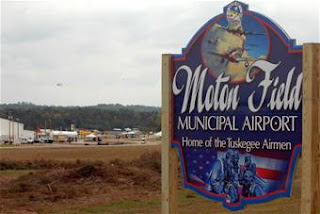Proposal
For my final project I have decided to immerse myself in all things Tuskegee Alabama. During the course, we read one of Ralph Ellison’s short stories entitled “Flying Home” and it is this story which I hope to understand more fully by travelling to the city where the story takes place. Tuskegee Alabama was a place of significant social development during the era of integration, when tensions between differing races in the South were strained. Ellison’s story is riddled with themes about the struggles encountered by persons of color who were on the front lines of racial tension. The Tuskegee Airmen undoubtedly faced endless trials and frustration regarding their occupation in the armed forces and the main character in the story is forced to deal with humiliation and hatred when he falls from the sky and lands his plane in a field owned by a white farmer. Throughout the story, Todd feels as though his crash landing will be a humiliation not only for him but for his entire race. He continually imagines that his actions will affirm, (in the minds of both blacks and whites) that his race of people are inferior and should be kept to menial work and kept away from more complex tasks such as flying planes.
This is a starkly different perspective from what we see in our culture today. Most black Americans consider the trials and eventual success of the Tuskegee Airmen as something to cherish. Most Americans feel that the Tuskegee Airmen represent some of the first real positive changes in the evolution of the South. Instead of being humiliated, the southern community seems to be exceptionally proud of the Tuskegee Airmen, vaulting them up as something to be admired and respected. I hope to better understand how this change in perspective has come about. How can Todd feel so embarrassed and angry during his story when so many people today are ecstatically proud of the accomplishments he and his fellow pilots made? We can see some of this change in the attitude and actions of the white farmer which Todd encounters. We learn from the kind words of the older black man who helps Todd in the story, that he has landed his plane on the property of a particularly racist and hateful white man. Yet, when this white farmer encounters Todd, instead of killing or punishing him, he merely tells him that he must get off the land, “Nigguh, Army or no, you gittin’ off my land!” (228).
By travelling to this historic part of the South and visiting several places of interest, I hope to truly understand why Todd’s character feels so despondent about his passion and failure, when now, the southern community is so certain that what he and the rest of the Tuskegee Airmen accomplished was utterly dignified and heroic. Obviously the integration of the military and the establishment of a squadron of black pilots were great achievements for the civil rights movement and humanity as a whole, but it appears that there is more to this story and its evolution which I intend to discover through my visits to places like Tuskegee University, Moton Airfield, and a farm near the area where Ellison’s story takes place.
Subscribe to:
Comments (Atom)



No comments:
Post a Comment